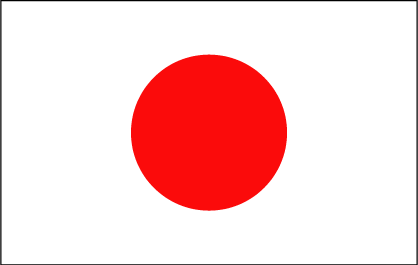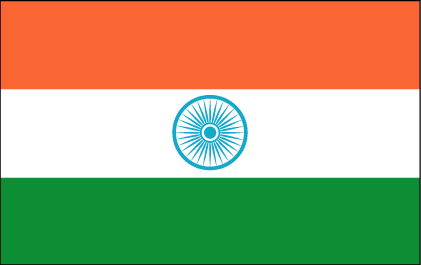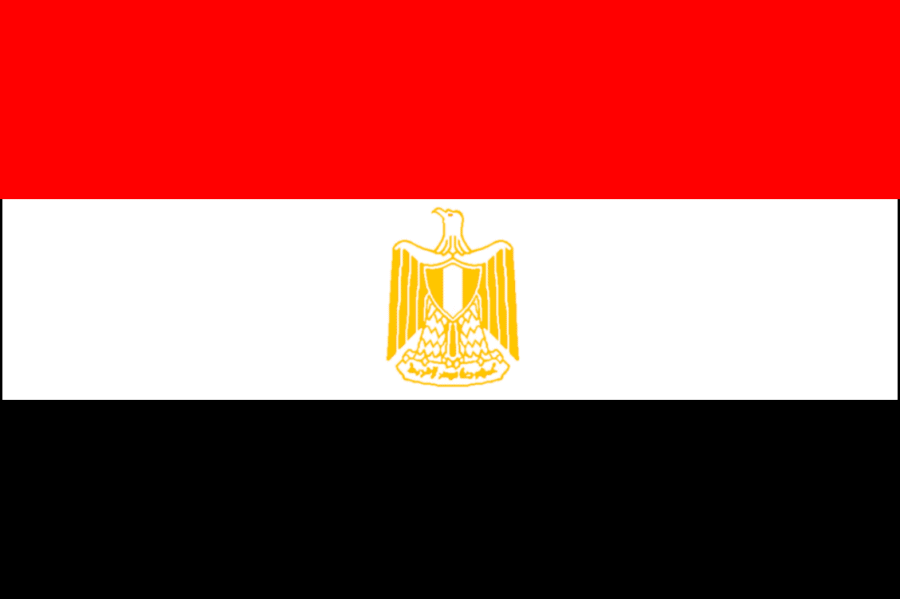INTRODUCTION

The formation of African-Asian Rural Development Organization (AARDO) [earlier known as Afro-Asian Rural Development Organization] in 1962 underscored the far-sightedness of the social and political leaders of Asia and Africa in recognising the need for cooperation among the countries in the field of agriculture and rural development. AARDO which is one of the earliest examples of South-South cooperation in rural development in the Afro-Asian region, is an autonomous inter-governmental Organization comprising country governments of Africa and Asia. The Organization was set up with a view to promote coordinated efforts, exchange of experiences and cooperative action for furthering the objectives of development of the rural areas. AARDO a non-political body enjoys observer status with various UN and other international organisations like Food and Agriculture Organization (FAO), International Fund for Agricultural Development (IFAD), United Nations Conference on Trade and Development (UNCTAD), United Nations Educational, Scientific and Cultural Organization (UNESCO), United Nations Development Programme (UNDP), International Cooperative Alliance (ICA), Centre on Integrated Rural Development for Asia and the Pacific (CIRDAP), etc. It also promotes collaboration with various international organisations for the economic and social welfare of the rural community.
HISTORY

The majority of the African and Asian countries, after the end of Second World War, and during the 1950s demanded enormous tasks for development. This brought forward the need of these countries to come together, exchange experiences and ensure mutual help. Two leaders of their time, Dr Punjabrao S. Deshmukh, the then India's Union Minister of Agriculture and Dr Hiroshi Nasu, at one time Ambassador of Japan to India, conceived the idea to establish a forum for the Asian countries to jointly discuss their many common problems. As a follow up of these discussions, the first East Asian Rural Reconstruction Conference was held in Tokyo in August 1955 in which twelve countries, namely, Cambodia, R O China, India, Indonesia, Japan, Malaysia, Nepal, Pakistan, Philippines, Sri Lanka, Thailand and Vietnam participated. Representatives of FAO, International Federation of Agricultural Producers (IFAP), ICA and the Asian Foundation also attended the Conference. Discussion on the more important agricultural and rural problems was the main aim of the Conference. Another important objective was to develop a wider vision in the spirit of international cooperation among the farmers of Asia. The success of the Tokyo Conference motivated the participants to meet again in about two years' time.
In 1960, Dr Hiroshi Nasu had a discussion with Dr Punjabrao S. Deshmukh. He proposed for another meeting during the beginning of 1961. The result was the convening of Afro-Asian Conference on Rural Reconstruction.
The first Afro-Asian Conference on Rural Reconstruction held its historic Session in New Delhi during 18-25 January 1961. The Conference was inaugurated by H E Dr Rajendra Prasad, the then President of the Republic of India. Twenty-three nations of Africa and Asia and five international organisations participated in the Conference. The participating countries and organisations were: Afghanistan, Egypt, Ghana, India, Indonesia, Iran, Japan, Jordan, Lebanon, Liberia, Malaysia, Morocco, Myanmar, Nepal, Pakistan, Philippines, Saudi Arabia, Sri Lanka, Sudan, Thailand, Tunisia, Turkey, Vietnam, FAO, IFAP, ICA, UNESCO and the Technical Cooperation Mission. The most important proposal that emanated from the deliberation of this Conference was to form an African-Asian Rural Reconstruction Organization which could provide continuity for such meetings. The Conference constituted an Executive Committee, with Dr Deshmukh as President to prepare draft of the Constitution of the Organization for consideration at its next session. The Conference also appointed an ad hoc Secretariat.
The Executive Committee met in Tehran during 8-9 May 1961 at the invitation of the Ministry of Agriculture, Government of Iran to discuss the draft of the Constitution prepared by the Secretariat. The draft Constitution after due discussion was presented before the Second Session of the African-Asian Conference on Rural Reconstruction held in Cairo during 19-31 March 1962. The Conference was inaugurated by H.E. Mr Kamal El-Din Hussain, the then Vice-President of Arab Republic of Egypt. It was in this Conference that the President of the Conference received a notice of acceptance of the Constitution from Egypt, India, Japan, Libya and Malaysia declaring that the Constitution of AARDO comes into force with effect from 31st March 1962. Thus was born Afro-Asian Rural Development Organization, initially with five (5) members and its headquarters provisionally located at New Delhi.
An Executive Committee was elected by the Conference comprising Egypt (President), Malaysia and Sudan (both Vice-Presidents) and India (outgoing President), Ghana, Indonesia, Japan, Lebanon, Libya, Morocco, Philippines, Tanzania, as members. Although there were many claimants in favour of locating the headquarters of AARDO in their countries, it was decided that permanent headquarters of AARDO be located in New Delhi. On 5th March 1966, a formal agreement between the Ministry of External Affairs of the Government of India and the Secretary General, AARDO was signed. To coincide with the event, 'AARDO Day' is thus celebrated on 5th March every year.
Chronology of Events Leading to the Establishment of AARDO
|
Year
|
Events
|
Venue
|
Participants
|
|
1955
|
First
East Asian Rural Reconstruction Conference |
Tokyo

|
Cambodia,
India, Indonesia, Japan, Malaysia, Nepal, Pakistan, Philippines,
Republic of China, Sri Lanka, Thailand and Vietnam. |
|
1961
|
First
Afro-Asian Conference on Rural Reconstruction |
New Delhi

|
Afghanistan,
Myanmar, Egypt, Ghana, India, Indonesia, Iran, Japan, Jordan,
Lebanon, Malaysia, Morocco, Nepal, Pakistan, Philippines,
Saudi Arabia, Sri Lanka, Sudan, Thailand, Tunisia, Turkey,
Vietnam, FAO, IFAP, ICA and UNESCO. |
|
1962
|
Second
Afro-Asian Conference on Rural Reconstruction |
Cairo

|
Algeria,
Cambodia, R O China, Egypt, Ethiopia, Ghana, India, Iraq, Jordan,
Kenya, Korea, Lebanon, Liberia, Libya, Malaysia, Morocco, Philippines,
Sierra Leone, Sudan, Syria, Tunisia and Vietnam. |



 The formation of African-Asian Rural Development Organization (AARDO) [earlier known as Afro-Asian Rural Development Organization] in 1962 underscored the far-sightedness of the social and political leaders of Asia and Africa in recognising the need for cooperation among the countries in the field of agriculture and rural development. AARDO which is one of the earliest examples of South-South cooperation in rural development in the Afro-Asian region, is an autonomous inter-governmental Organization comprising country governments of Africa and Asia. The Organization was set up with a view to promote coordinated efforts, exchange of experiences and cooperative action for furthering the objectives of development of the rural areas. AARDO a non-political body enjoys observer status with various UN and other international organisations like Food and Agriculture Organization (FAO), International Fund for Agricultural Development (IFAD), United Nations Conference on Trade and Development (UNCTAD), United Nations Educational, Scientific and Cultural Organization (UNESCO), United Nations Development Programme (UNDP), International Cooperative Alliance (ICA), Centre on Integrated Rural Development for Asia and the Pacific (CIRDAP), etc. It also promotes collaboration with various international organisations for the economic and social welfare of the rural community.
The formation of African-Asian Rural Development Organization (AARDO) [earlier known as Afro-Asian Rural Development Organization] in 1962 underscored the far-sightedness of the social and political leaders of Asia and Africa in recognising the need for cooperation among the countries in the field of agriculture and rural development. AARDO which is one of the earliest examples of South-South cooperation in rural development in the Afro-Asian region, is an autonomous inter-governmental Organization comprising country governments of Africa and Asia. The Organization was set up with a view to promote coordinated efforts, exchange of experiences and cooperative action for furthering the objectives of development of the rural areas. AARDO a non-political body enjoys observer status with various UN and other international organisations like Food and Agriculture Organization (FAO), International Fund for Agricultural Development (IFAD), United Nations Conference on Trade and Development (UNCTAD), United Nations Educational, Scientific and Cultural Organization (UNESCO), United Nations Development Programme (UNDP), International Cooperative Alliance (ICA), Centre on Integrated Rural Development for Asia and the Pacific (CIRDAP), etc. It also promotes collaboration with various international organisations for the economic and social welfare of the rural community. The majority of the African and Asian countries, after the end of Second World War, and during the 1950s demanded enormous tasks for development. This brought forward the need of these countries to come together, exchange experiences and ensure mutual help. Two leaders of their time, Dr Punjabrao S. Deshmukh, the then India's Union Minister of Agriculture and Dr Hiroshi Nasu, at one time Ambassador of Japan to India, conceived the idea to establish a forum for the Asian countries to jointly discuss their many common problems. As a follow up of these discussions, the first East Asian Rural Reconstruction Conference was held in Tokyo in August 1955 in which twelve countries, namely, Cambodia, R O China, India, Indonesia, Japan, Malaysia, Nepal, Pakistan, Philippines, Sri Lanka, Thailand and Vietnam participated. Representatives of FAO, International Federation of Agricultural Producers (IFAP), ICA and the Asian Foundation also attended the Conference. Discussion on the more important agricultural and rural problems was the main aim of the Conference. Another important objective was to develop a wider vision in the spirit of international cooperation among the farmers of Asia. The success of the Tokyo Conference motivated the participants to meet again in about two years' time.
The majority of the African and Asian countries, after the end of Second World War, and during the 1950s demanded enormous tasks for development. This brought forward the need of these countries to come together, exchange experiences and ensure mutual help. Two leaders of their time, Dr Punjabrao S. Deshmukh, the then India's Union Minister of Agriculture and Dr Hiroshi Nasu, at one time Ambassador of Japan to India, conceived the idea to establish a forum for the Asian countries to jointly discuss their many common problems. As a follow up of these discussions, the first East Asian Rural Reconstruction Conference was held in Tokyo in August 1955 in which twelve countries, namely, Cambodia, R O China, India, Indonesia, Japan, Malaysia, Nepal, Pakistan, Philippines, Sri Lanka, Thailand and Vietnam participated. Representatives of FAO, International Federation of Agricultural Producers (IFAP), ICA and the Asian Foundation also attended the Conference. Discussion on the more important agricultural and rural problems was the main aim of the Conference. Another important objective was to develop a wider vision in the spirit of international cooperation among the farmers of Asia. The success of the Tokyo Conference motivated the participants to meet again in about two years' time.